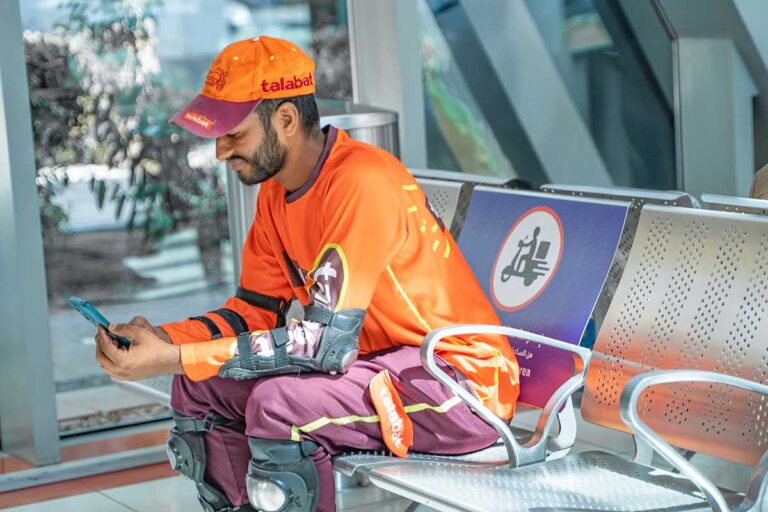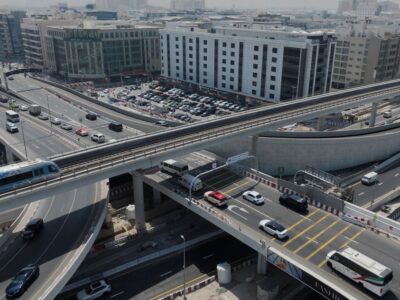Dubai’s Roads and Transport Authority (RTA) has opened 15 air-conditioned rest areas for delivery bike riders at bus and metro stations across the emirate.
The initiative supports RTA’s efforts to improve road safety, enhance quality of life, and provide services and comfort for delivery riders during the midday work ban.
RTA opens air-conditioned shelters for delivery riders
The establishment of these temporary rest areas complements RTA’s provision of air-conditioned shelters for delivery bike riders, which previously included the installation of 40 permanent facilities across locations in the emirate.
The exterior design of these shelters was developed to reduce the impact of direct sunlight while ensuring insulation without obstructing visibility.
The shelters are equipped with water dispensers, mobile phone charging stations, and parking for motorbikes, among other features that enhance rider comfort and promote compliance with traffic rules and regulations.
The newly established temporary rest areas are being supplied with 7,500 ready-made hot meals courtesy of the UAE Food Bank, in partnership with Deliveroo.
The initiative seeks to provide free meals to delivery riders in recognition of their daily service to the community and their contribution to the emirate’s economy, particularly amid the expansion of the delivery sector.
The new rest areas have been set up at the following bus stations: Gold Souq, Al Satwa, Al Jafiliya, and Oud Metha. They are also available at the following metro station exits: e& (Exit 1), Al Qusais (Exit 1 and 2), Emirates Towers (Exit 1), Insurance Market (Exit 2), Centrepoint (Exit 1), Al Furjan (Exit 1), Business Bay (Exit 2), DMCC (Exit 2), ADCB (Exit 2), and BurJuman (Exit 4).
“RTA is committed to providing a safe and comfortable environment for delivery bike riders and enhancing their road safety, especially given the remarkable growth this sector has seen in recent years in response to rising public demand for goods,” the Dubai Media Office said in a statement.
RTA has developed an integrated framework for the delivery sector to ensure the provision of services to the public.
This includes setting regulations and conditions governing the activity, alongside initiatives aimed at supporting the sector’s performance targets.
The initiative seeks to support delivery riders, who represent the backbone of the delivery sector, while raising public awareness of their role.
It also aims to curb food waste by redistributing surplus meals in a safe and organised manner. The initiative aligns with a strategy to promote sustainability and foster partnerships with the private sector.







